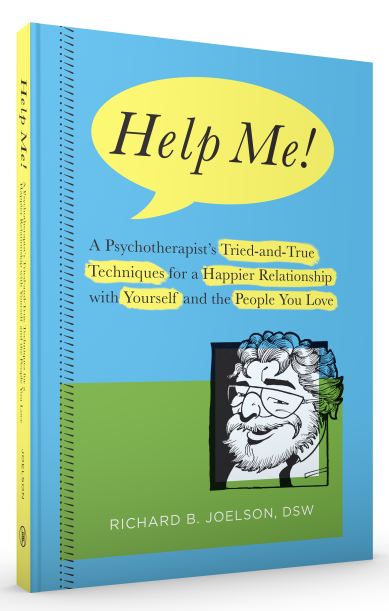When I asked Kelli what she thought she wanted to do about Greg, she looked startled and exclaimed, “I have no idea!” Kelli was unsure about her feelings and interests regarding her new beau and, we discovered, had asked everybody what she should do … except herself! Kelli and I agreed that the real problem was less ‘what to do about Greg,’ than understanding why she seemed unable (or even unwilling) to figure this out for herself.
Kelli, like so many individuals struggling to make important life-decisions, did not have much faith in her ability to make sound, reliable choices and decisions, especially of a personal nature. Raised by parents who valued obedience, compliance, and passivity, rather than independence, autonomy, and assertiveness, Kelli was criticized, often mercilessly, and developed into a person who magnified her own limitations and believed herself to be inferior to others. Procrastination, indecisiveness, and self-doubt are common consequences of an emotional climate like the one Kelli grew up in.
It was always difficult for Kelli to know her abilities and strengths, including whether or not she had the capacity to make reasoned judgments, sound choices, and reliable decisions. Her low self-esteem and chronic self-doubt were responsible for her over reliance on the presumed wisdom of others in knowing what was best for her. This explained her need to survey others for guidance in how to proceed in a new romantic relationship, as well as so many other decisions affecting her young adult life.
What eventually changed for Kelli in the course of our work together was her appreciation for the fact that decisions like whether or not to deepen a romantic relationship, make a job or career change, move to a new apartment, and so many others were hers and hers alone. While appropriate input from trusted and informed others was helpful, the ultimate choice was hers and she needed to be able to make it, regardless of the outcome. It was also helpful for Kelli to no longer assess and evaluate her decisions based on the outcome of her choices. The decision to ask a boss for a raise, for example, ought not to be evaluated solely on whether or not the raise was given. Similarly, her decision to continue to see Greg could not only be related to how things eventually turned out between them.
Update for the curious: Kelli decided to continue seeing Greg. Four months later, she discovered that Greg had lied to her on a number of occasions and she decided to terminate the relationship… without asking anyone else what she should do. Fortunately, and to Kelli’s credit, she did not blame herself for a ‘bad’ decision in continuing to see Greg four months earlier, recognizing that she made a choice based on the available information she had at the time and based on her own criteria and her own judgment.
